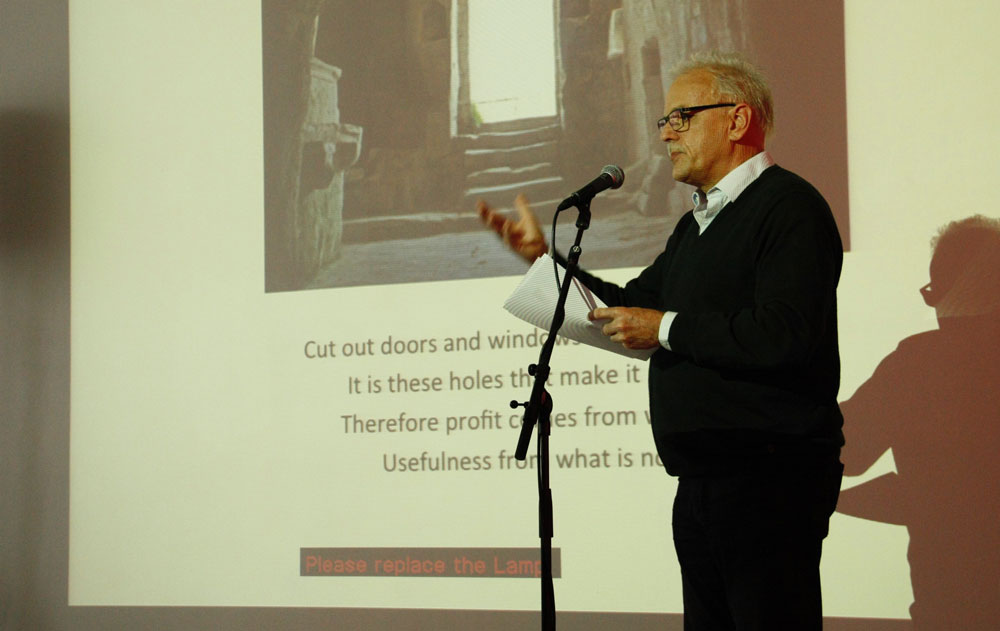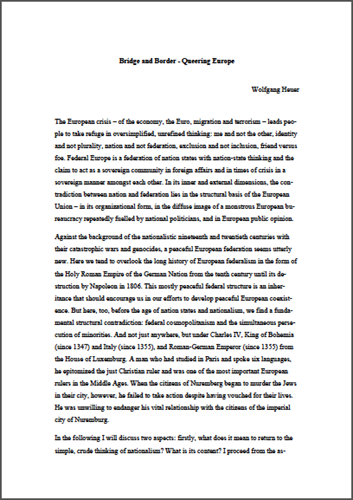Queering Europe – solving the European paradox

(Foto: Rune Salomonsen)
The political scientist Wolfgang Heuer attended Changing Utopia at Oktoberdans 2016 under the following headline: Queering Europe – solving the European paradox.
In his speech which can be read in this PDF, Heuer argues for federalism as a more fruitful way of handling plurality and complex political issues compared to the crude, antagonistic, simplifying and traditionally dangerous thinking of nationalism. Nationalism and the co-related idea of sovereignty has a lot of strong images developed over the last 500 years. Federalism on the other hand, dating even further back, to the Holy Roman Empire in the Middle Ages, seems devoid of guiding images – even of a conceptual framework of its own. To overcome the monstrous bureaucracy of EU, fuelled by nationalist politicians, in line with the original idea of a united Europe coming from the resistance movement (as described elsewhere), developing a federalist imagery might seem crucial. Drawing on his British colleague Cynthia Weber and her call for a queer approach to international politics, Heuer compares the image of Tom Neuwirth / Conchita Wurst – the winner of the European Song Contest in 2014 – as a possible image of a federalist Europe. However awkward or controversial, it points to a more human imagery than the iconography of the Euro banknotes with its images of bridges, doors and windows representing empty spaces of mobility.
Wolfgang Heuer lectures at the Institute for Political Science at the famous Free University of Berlin, and as a guest professor both in Brazil and Chile. His research and publications revolve around the work of Hannah Arendt, focusing on themes such as civic courage, and forms of extreme violence in post-totalitarian society. He is the managing editor of the online journal HannahArendt.net and co-curated the international art exhibition „Hannah Arendt Thinking Space" in 2006.
Heuer has written more on federalism in the following two articles: "The Nameless Heritage of the Résistance", in: Annals of the Croatian Political Science Association 2012, Zagreb 2013, pp. 75-90 and more recently "Föderationen - Hannah Arendts politische Grammatik des Gründens", Leinebögen 5, Hannover 2016.






